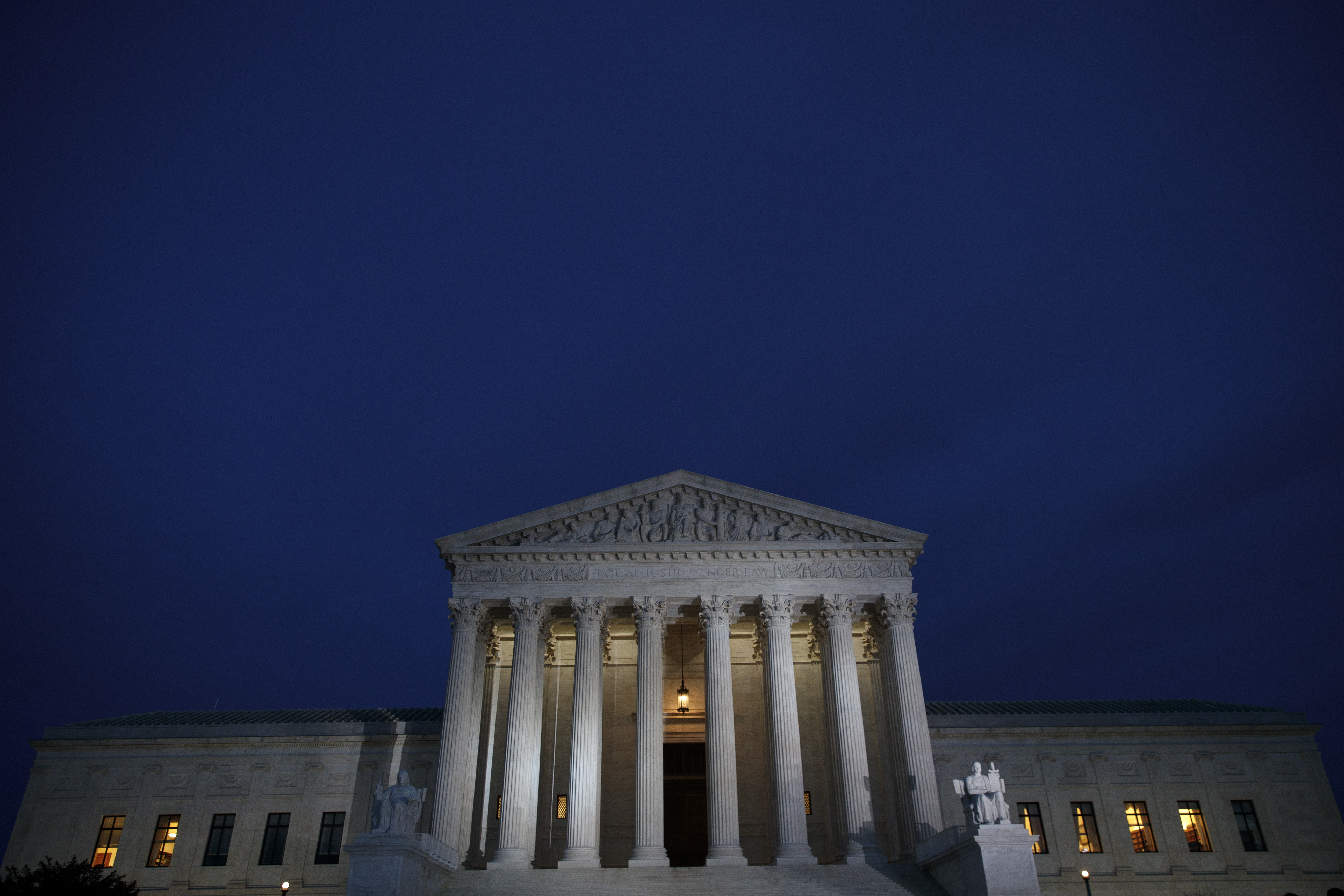Justice Clarence Thomas: LGBTQ+ Rights and Contraception Are Next
"We should reconsider all of the Court's substantive due process precedents..."


With its stunning ruling Friday morning, the Supreme Court not only struck down Roe v. Wade—a precedent many believed until recently to be "settled law"—but also opened the door to reversals of other progressive decisions by the court. Specifically, Americans' rights to same-sex intimacy, marriage equality, and contraception. These rights were specifically called out by Justice Clarence Thomas, who argued in a concurring opinion with Friday's ruling that such rights should be "reconsidered." He added that the Supreme Court had a "duty" to do so.
Thomas wrote: "In future cases, we should reconsider all of this Court’s substantive due process precedents, including Griswold, Lawrence, and Obergefell. Because any substantive due process decision is 'demonstrably erroneous'...we have a duty to 'correct the error' established in those precedents."
These are the cases he's talking about:
- Griswold v. Connecticut: The 1965 case that determined that people had a constitutional right to obtain contraceptives
- Lawrence v. Texas: The 2003 case that determined that people had a constitutional right to engage in same-sex sexual relations
- Obergefell v. Hodges: The 2015 case that determined that people had a constitutional right to marriage equality
Justice Thomas added: "After overruling these demonstrably erroneous decisions, the question would remain whether other constitutional provisions guarantee the myriad rights that our substantive due process cases have generated. For example, we could consider whether any of the rights announced in this Court’s substantive due process cases are 'privileges or immunities of citizens of the United States' protected by the Fourteenth Amendment."
He concluded: "To answer that question, we would need to decide important antecedent questions, including whether the Privileges or Immunities Clause protects any rights that are not enumerated in the Constitution and, if so, how to identify those rights...That said, even if the Clause does protect unenumerated rights, the Court conclusively demonstrates that abortion is not one of them under any plausible interpretive approach."
The Due Process clause is the American right to due process before rights are taken away. Thomas is arguing that any rights not specifically in the Constitution could now be unraveled by the Court.
After the draft of the decision leaked in May, President Biden noted that the ruling could have a domino effect. "If the rationale of the decision as released were to be sustained, a whole range of rights are in question. A whole range of rights. And the idea [that] we’re letting the states make those decisions, localities make those decisions, would be a fundamental shift in what we’ve done.”
Get exclusive access to fashion and beauty trends, hot-off-the-press celebrity news, and more.

Jenny is the Digital Director at Marie Claire. A graduate of Leeds University, and a native of London, she moved to New York in 2012 to attend the Columbia University Graduate School of Journalism. She was the first intern at Bustle when it launched in 2013 and spent five years building out its news and politics department. In 2018 she joined Marie Claire, where she held the roles of Deputy Digital Editor and Director of Content Strategy before becoming Digital Director. Working closely with Marie Claire's exceptional editorial, audience, commercial, and e-commerce teams, Jenny oversees the brand's digital arm, with an emphasis on driving readership. When she isn't editing or knee-deep in Google Analytics, you can find Jenny writing about television, celebrities, her lifelong hate of umbrellas, or (most likely) her dog, Captain. In her spare time, she writes fiction: her first novel, the thriller EVERYONE WHO CAN FORGIVE ME IS DEAD, was published with Minotaur Books (UK) and Little, Brown (US) in February 2024 and became a USA Today bestseller. She has also written extensively about developmental coordination disorder, or dyspraxia, which she was diagnosed with when she was nine.